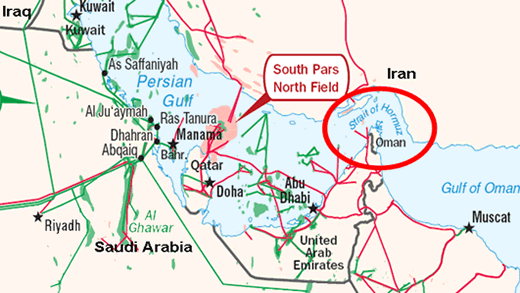Middle East News: Tankers Struck In Gulf Of Oman Amid US-Iran Tensions

Two tankers, one carrying oil and the other chemicals, have been struck in the Gulf of Oman. The attacks come as the United States and Iran have faced unprecedented tension in the Middle East, due to U.S. sanctions on Iran and tough rhetoric exchanged between the two countries.
One of the tankers was carrying "Japan-related" cargo and is called the Kokuka Courageous. Japanese President Shinzo Abe had just met Iranian President Hassan Rouhani to try and deescalate tensions in the region. The ship was operated by BSM Management, which is based in Hamburg, Germany.
The other vessel, called the Front Altair, was owned by Norwegian shipping firm Frontline. The crew aboard the Frontline were rescued by an Iranian ship.
The vessels were near the Strait of Hormuz, a strategic geographical choke point for international maritime trade. A 2007 report from the Center for Strategic and International Studies said 40% of oil trade goes through the strait. Iran-related groups, such as the Iranian Revolutionary Guard Corps, could be threatening oil traffic near the Strait of Hormuz in order to retaliate against U.S. sanctions.
On the other hand, Iranian Foreign Minister Javad Zarif called the attacks "deeply suspicious" and called for dialogue with other countries in the region on the matter.
The French Ministry of Foreign Affairs called the incident "disturbing," CNN reported.
In response to the attacks, Business Insider reported that Oil stocks were jumping 3% to 4%.
The attacks come one day after Yemeni Houthi rebels shot a missile at Abha international Airport in Saudi Arabia, which wounded 26 people. The Houthis are backed by Iran.
Last month, the U.S. accused Iran of attacking four oil tankers off the Emirati port of Fujairah. Iran disputes the allegations.
© Copyright IBTimes 2025. All rights reserved.





















